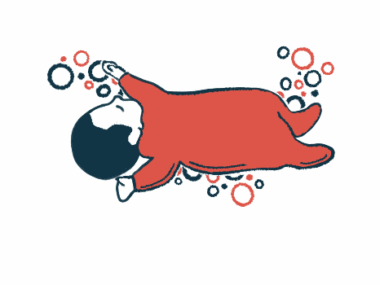Anti-seizure Therapy STK-001 Safe, Showing Hints of Efficacy in Trial
Written by |

Treatment with STK-001, Stoke Therapeutics‘ investigational therapy for Dravet syndrome, has so far raised no safety concerns among children taking part in the ongoing Phase 1/2a MONARCH clinical trial, according to the results of a planned interim analysis.
Early data also hint that the medication may reduce seizure frequency among trial participants.
“The initial positive safety data from MONARCH are highly encouraging,” Barry Ticho, MD, PhD, Stoke’s chief medical officer, said in a press release.
STK-001 is an antisense nucleotide designed to increase the production of the NaV1.1 sodium ion channel protein in nerve cells. Low levels of this protein, as a result of a genetic mutation, cause most cases of Dravet syndrome. The therapy is given by injection through the spinal cord into the fluid that surrounds the brain and spine.
MONARCH (NCT04442295), which is actively recruiting participants at 18 locations across the U.S., is an open-label clinical trial that aims to assess the safety, tolerability, and pharmacological properties of STK-001 in children and adolescents with Dravet syndrome, ages 2-18.
The study is divided into two phases: a single ascending doses or SAD phase, in which patients receive single doses of STK-001 — at doses of 10, 20, and 30 mg — and a multiple ascending doses or MAD phase, in which the children receive multiple doses of STK-001 at doses of 20 and 30 mg.
Following a partial clinical hold on higher doses of the therapy by the U.S. Food and Drug Administration (FDA), Stoke now announced that the agency has allowed a greater dose of STK-001 — 45 mg — to be added to the study. That higher dose will be used in both the SAD and MAD parts.
The new interim analysis comes from the first 21 children who were enrolled in the trial. Of them, 15 received a single injection (SAD) of STK-001, at doses of either 10, 20, or 30 mg. The remaining six were given multiple injections (MAD) at a dosage of 20 mg; most received three injections each one month apart.
So far, all of these doses have been generally well-tolerated, and no safety concerns related to the study treatment were noted. Four of the 21 patients experienced serious adverse events while on STK-001, but none of these were deemed likely related to the investigational treatment.
Three patients, all of whom received one injection at either 10 or 20 mg, experienced adverse events, or side effects, that were deemed related to treatment. Common treatment-emergent adverse events included headache, irritability, vomiting, seizure, and back pain.
Pharmacological data have so far been consistent with preclinical models. Notably, these data suggest that 95% of patients will have active levels of STK-001 in their brains after three monthly injections at dosages of 30 mg.
“We now have greater clarity on the dose levels that are likely to be pharmacologically active in patients,” Ticho said.
The participants in MONARCH generally have a high seizure burden. In the four-week screening period prior to receiving the first dose of STK-001, the median number of convulsive seizures was 17. This was despite high levels of anti-seizure medicines: 18 of the 21 patients were on three or more concomitant anti-seizure medicines, such as clobazam and fenfluramine.
“Dravet syndrome is a devastating disease that is difficult to treat. Despite available anti-seizure medicines, seizures are not adequately controlled for more than 90% of patients, contributing to poor quality of life,” Ticho said.
Preliminary data indicate that trial participants given a single injection of STK-001 tended to experience fewer convulsive seizures afterward. In 11 patients with available data, eight experienced a reduction in seizure frequency after one injection of the investigational medicine (at doses of 10, 20, or 30 mg).
“Although based on an open-label study of a small number of patients, we saw an early trend toward a reduction in convulsive seizure frequency, which is remarkable considering the amount of concomitant medicines used and the relatively low single dose levels of STK-001 evaluated,” Ticho said.
At the time of analysis, all participants who received a single dose of STK-001 in MONARCH have enrolled in SWALLOWTAIL (NCT04740476), an open-label extension study testing the long-term safety and tolerability of repeat doses of the investigational medicine.
Stoke also is running a similar Phase 1/2a open-label trial called ADMIRAL, which aims to enroll approximately 22 children with Dravet syndrome at sites across the U.K. and is testing multiple doses of STK-001 up to 70 mg. The first patient was dosed in September, Stoke announced.
“We look forward to continuing our two ongoing studies as we work to identify a dose level that has the potential to maximize efficacy while minimizing treatment frequency for patients with Dravet syndrome,” Ticho said.







